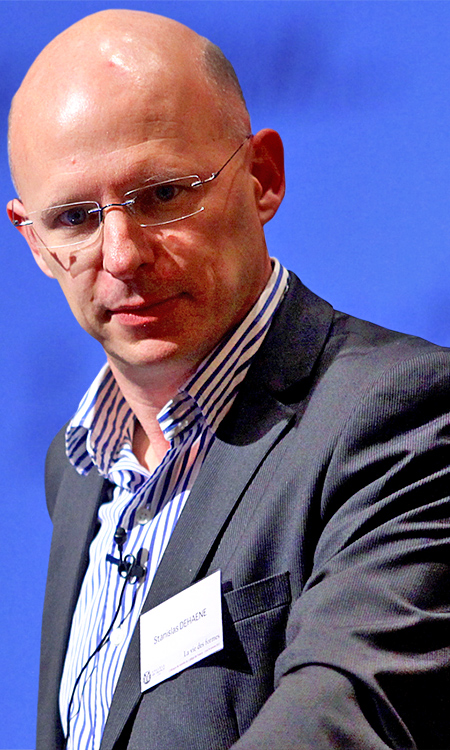
Hans-Lukas Teuber Awards Ceremony and Lecture: Advances in the search for signatures of consciousness
Description
Event Livestream: https://youtu.be/J-qu95my_fE
Out of the many stimuli that bombard us, only a small fraction ever makes it into our conscious perception. What distinguishes those that are selected for conscious access from those that remain subliminal? And what separates the normal human brain, which is capable of conscious access, from that of patients in coma or vegetative state, who no longer seem to gain conscious access to any information? Using brain-imaging tools, particularly magneto-encephalography, I will show recent tests of the global neuronal workspace theory of consciousness, which suggest that conscious access relates to a late and global ignition in a distributed circuit involving prefrontal and parietal nodes. The signatures of consciousness that we observe in the normal brain are now starting to be translated into the clinic.
Speaker Bio
Stanislas Dehaene received his training in mathematics at the École normale supérieure in Paris, then completed a PhD in cognitive psychology with Jacques Mehler, post-doctoral studies with Michael Posner, as well as neuronal modelling studies with Jean-Pierre Changeux. He has been working since 1997 at the Orsay brain imaging center near Paris (Service Hospitalier Frédéric Joliot of the Commissariat à l'Énergie Atomique), where he directs the Cognitive Neuroimaging Unit since 2001. In September 2005 he was elected as a full professor on the newly created chair of Experimental Cognitive Psychology at the Collège de France in Paris.
Stanislas Dehaene's interests concern the cerebral bases of specifically human cognitive functions such as language, calculation, and reasoning. The team uses a variety of experimental methods, including mental chronometry in normal subjects, cognitive analyses of brain-lesioned patients, and brain-imaging studies with positron emission tomography, functional magnetic resonance imaging, and high-density recordings of event-related potentials. Formal models of minimal neuronal networks are also devised and simulated in an attempt to throw some links between molecular, physiological, imaging, and behavioral data.
Stanislas Dehaene's main scientific contributions include the study of the organization of the cerebral system for number processing. Using converging evidence from PET, ERPs, fMRI, and brain lesions, Stanislas Dehaene demonstrated the central role played by a region of the intraparietal sulcus in understanding quantities and arithmetic (the number sense). He was also the first to demonstrate that subliminal presentations of words can yield detectable cortical activations in fMRI, and has used these data to support an original theory of conscious and nonconscious processing in the human brain. With neurologist Laurent Cohen, he also studied the neural networks of reading and demonstrated the crucial role of the left occipito-temporal region in word recognition (the visual word form area).
Stanislas Dehaene is the author of over 100 scientific publications in major international journals. He has received several international prizes including the McDonnell Centennial Fellowship and the Louis D. prize of the French Academy of Sciences (with D. Lebihan). He has published an acclaimed book (The Number Sense), which has been translated in eight languages. He has also edited three books on brain imaging, consciousness, and brain evolution, and has authored two general-audience films on the human brain. He is the associate editor of Cognition, an international journal of Cognitive Science.
Additional Info
The Hans-Lukas Teuber Memorial Lecture is made possible by the Robert K. Yin Fund, established in 1998 by Robert K. Yin (BCS Ph.D. 1970), founder and president of Cosmos Corporation. Dr. Yin wished to commemorate the department's founder and first chairman, whose vision continues to inspire and inform the department's work. Dr. Teuber was also a consensus builder and a great teacher—attributes that are celebrated in this lecture series. Speakers include distinguished members from the neuroscience and cognitive science community, who are selected by a small group of graduate students in conjunction with a faculty member.

